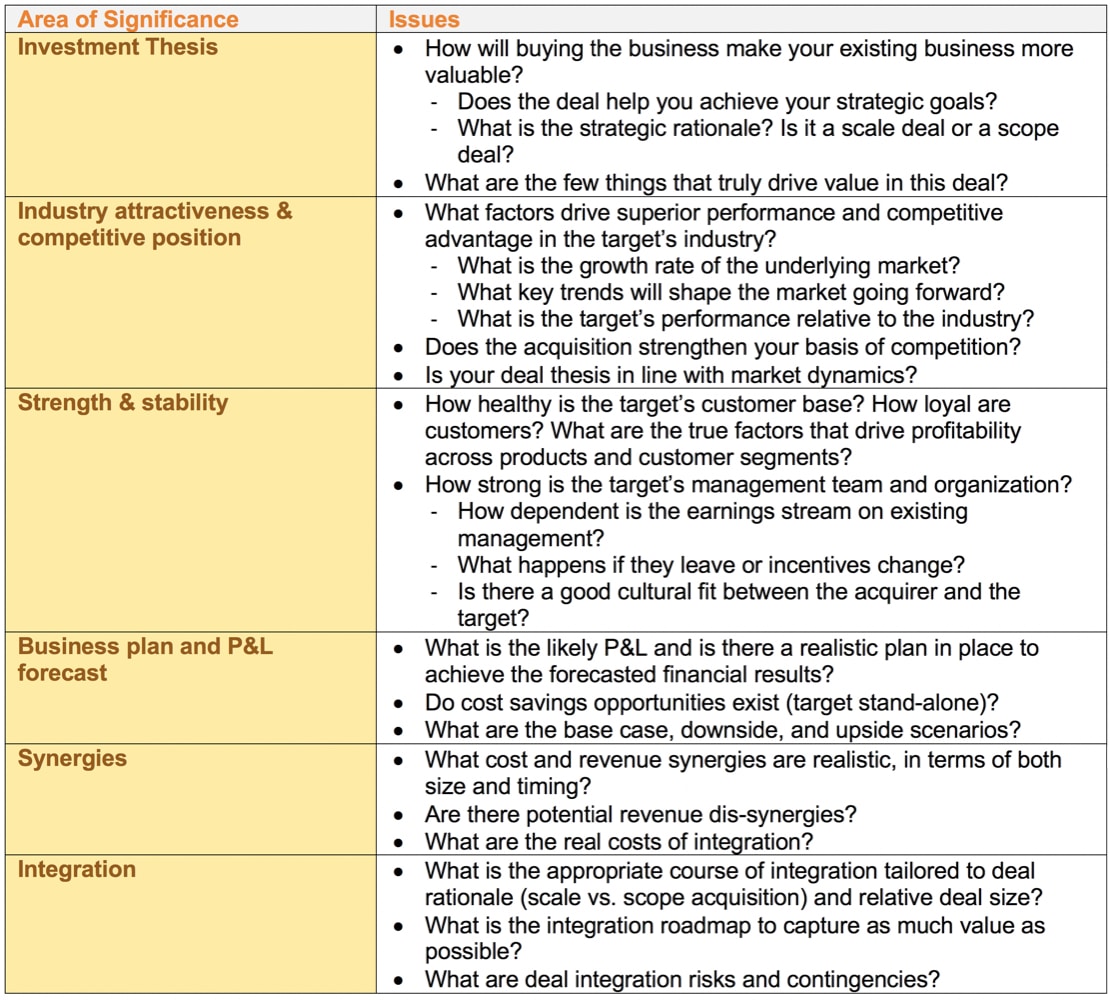During one of my internships I worked on a due diligence project, which involved conducting market research to help a PE firm decide whether to acquire a major stake in a joint venture owned by one of the largest telecom companies in Asia. It was a very interesting experience, so in this post I will share what I learned, as well as talk about the role played by management consulting firms.
Due diligence is a crucial step in the M&A process, which aims to validate the information provided by the target company, highlight key risks, and assess whether it is still an attractive opportunity to pursue. Done right, it helps acquirers to minimize risk and gives them confidence that they can create sustainable value through the acquisition.
There are many different types of due diligence such as legal, accounting, financial, and commercial due diligence amongst many others. These are outsourced by PE firms or corporate acquirers to a specialist adviser: lawyers for legal issues, accountants for auditing, and investment bankers for carrying out due diligence from a financing perspective. Financial due diligence involves a lot of financial modelling (DCF,LBO,NAV) and deal structuring. The investment bankers assess current and projected future cash flows to determine how much debt they can take on, service, and pay down. They structure deals using different debt tranches, tax / depreciation schedules, and exit EBITDA multiples to build a range of exit pricing and IRRscenarios. This allows them to value the target company and determine a bid price.
At the same time, management consultants will generally be brought in to look at the viability of the business, from a strategic and operational perspective.
Based on my experience and conversations with consultants, a typical due diligence project is shorter than a general strategy engagement (2-4 weeks vs. 6-12 weeks) with minimal travel and minimal client exposure. These projects can take many forms but basically, you are assessing the target’s commercial outlook – industry size/growth, customer segments, market position (new products, new markets, internationalization), cost-cutting options, etc.
Below is a snapshot of what acted as a guide to conducting due diligence during my own tenure. The ultimate goal is to advise on reaching an investment decision and perform fundamental valuation.
Table 1 – Framework for validating an M&A deal from a strategic and operational perspective
The due diligence work itself is gruelling and very demanding, involving a lot of primary research (expert interviews, large scale customer surveys, focus groups, store visits) as well as secondary research. I remember committing a full week in the office 9am-1am (that’s about 110 hours in a week!). However, I found it to be extremely rewarding as you are exposed to multiple companies / industries during a short period of time.
It can also involve a lot of modelling though they tend to be statistical models rather than financial ones (e.g. Chi-square Automatic Interaction Detector(CHAID),factor analysis,or multivariate regression analysisto identify drivers of growth and forecast future growth rates). The due diligence is then fed back to the PE firm or corporate acquirer so that they can input more refined assumptions into their financial models.
Exit Opportunities in Private Equity
In Canada and the U.S., consulting firms with strong due diligence practices include Bain & Co., L.E.K. Consulting, and EY-Parthenon. So, if private equity is your end goal, I would suggest looking into these consulting firms to maximize your chance of landing an exit opportunity in private equity.
Jason Oh is a management consulting enthusiast with past experience in helping F500 financial services clients with product management, go-to-market and distribution channel strategy.
Image: Pexels

